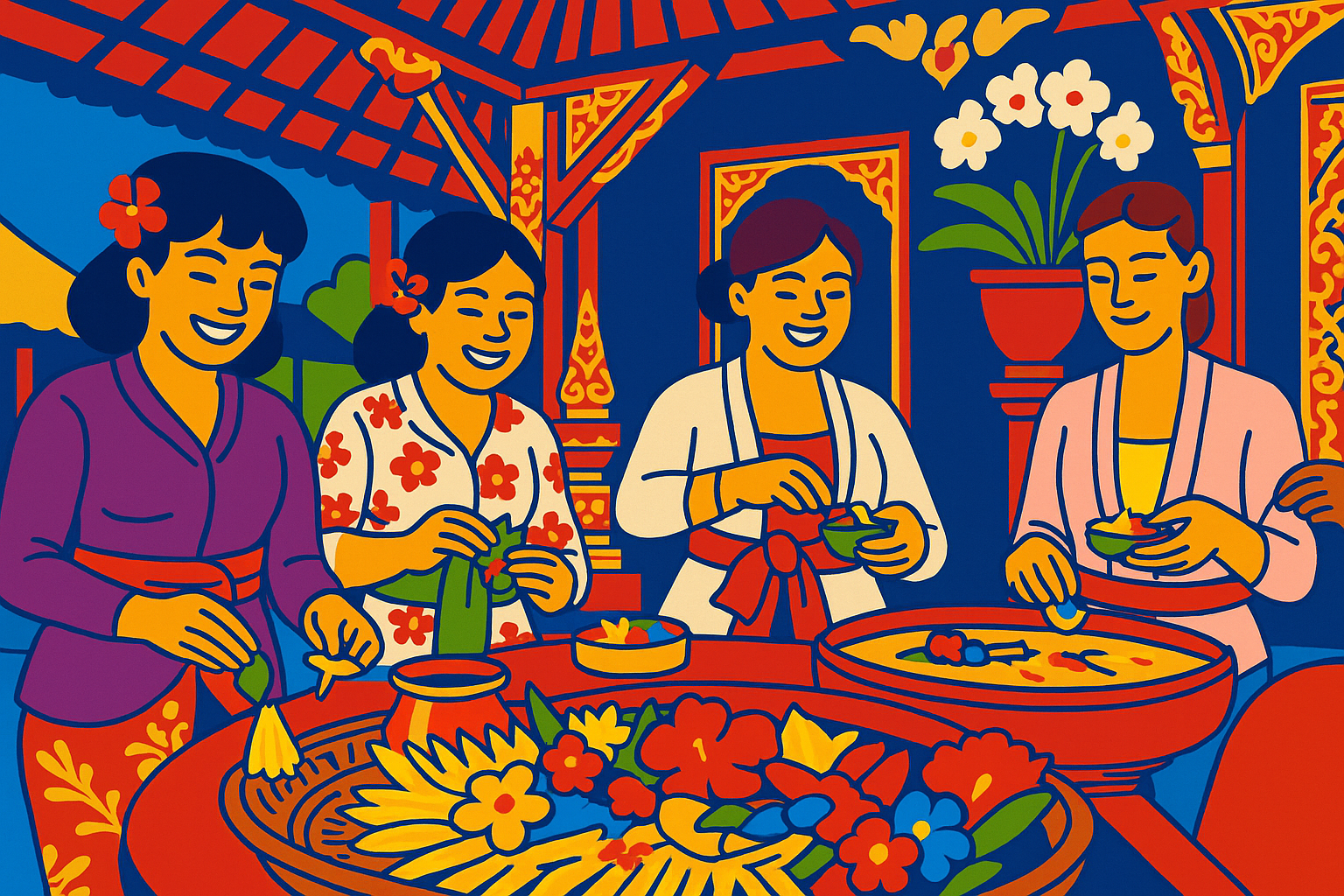By: I Gede Putu Rahman Desyanta, CEO of Baliola (Part Two of Three Articles)
(The following article was published on the Bekraf website)
Menyama Braya is not merely a cultural expression recited in ceremonies or speeches. It is a way of life, pulsing through conversations at the bale banjar (community hall), in mutual efforts to clean temples, and in the spirit of helping each other during times of hardship. It is not governed by written rules, but grows from shared habits, beliefs, and collective agreements.
What makes Menyama Braya extraordinary is not that it binds through coercion, but that it sustains relationships through five key values that naturally reinforce and protect one another. These five values are:
1. Shared Ownership
In the traditional Balinese villages, no one truly stands alone. The bale banjar, meeting halls, and even collective harvests are often managed as communal property. This concept of collective ownership gives rise to a strong sense of social responsibility. When people feel they collectively own something, they also feel obligated to care for and protect it.
In the digital context, this value is essential so we don’t just become passive consumers of platforms, but feel like we are part of the digital community. Open-platform models, digital cooperatives, and mutual-support communities are new manifestations of this value.
2. Transparency
Banjar meetings are participatory democracy in action. Anyone can speak. Every proposal is discussed openly. Even on sensitive matters, discussions take place in spaces that accommodate every voice. This openness creates a sense of security and collective belonging. In the digital world, transparency is often replaced by hidden algorithms and opaque platform policies.
This value urges us to create digital ecosystems that are transparent in data management, clear in curation logic, and fair in benefit distribution.
3. Equality
Although there is a customary structure in Balinese society, Menyama Braya ensures that every community member has equal rights and responsibilities. In communal work, no caste is dominant—everyone participates.
This equality fosters horizontal solidarity: no one feels higher or lower, as everyone contributes equally.
In the digital world, equality means equal access to opportunities, equal voice in online spaces, and inclusive participation models. This can be implemented through decentralized technologies and contribution-based digital communities, rather than through connections or power.
4. Trust
This is the core of it all. Trust is the reason someone can leave their child with a neighbor or leave their house unlocked during ceremonies. Trust in customary settings is built through shared experiences and reputations that are continuously shaped by real-world interactions.
In the instant world of digital spaces, trust is often built through symbols: logos, checkmarks, or ratings. But these are superficial if not accompanied by mechanisms that are verifiable, transparent, and consistent in protecting user rights.
5. Empowerment
Menyama Braya is not just about protecting the vulnerable, but also about encouraging each individual to grow and thrive. A healthy community doesn’t just nurture closeness, but also acts as a space for empowerment—morally, emotionally, and even economically.
In the digital realm, this principle means fostering systems that give all participants a voice, a space to grow, and opportunities to develop. This can take the form of mentorship, support for minority digital communities, and digital spaces built on shared values.
A Living, Evolving Ecosystem
These five values do not stand alone—they form an interconnected web of values that support each other:
Shared ownership nurtures care; transparency drives accountability; equality builds social trust; trust strengthens collaboration; and empowerment ensures collective growth.
These values have sustained Bali for hundreds of years. And today, as the world moves toward digitalization, we face an important question:
Can these values not only survive but also become the foundation of our future digital systems?
We will find the answer as we begin to map these values into technology.
And one of the most relevant technological fields for this is blockchain—not simply because it is popular, but because it is built with principles and mechanisms that align closely with the spirit of Menyama Braya.
Continued in Part 3: “Blockchain: When Balinese Traditional Values Meet Future Technology”
First Article: “Menyama Braya Digital, From Bale Banjar to Blockchain”
